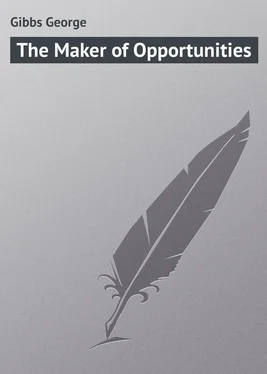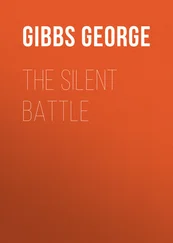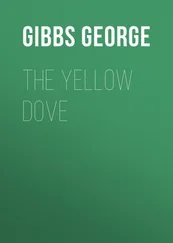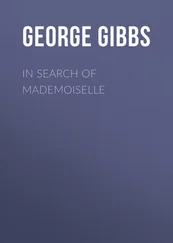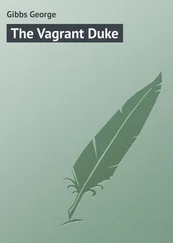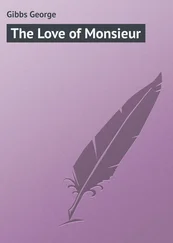George Gibbs - The Maker of Opportunities
Здесь есть возможность читать онлайн «George Gibbs - The Maker of Opportunities» — ознакомительный отрывок электронной книги совершенно бесплатно, а после прочтения отрывка купить полную версию. В некоторых случаях можно слушать аудио, скачать через торрент в формате fb2 и присутствует краткое содержание. Жанр: foreign_prose, на английском языке. Описание произведения, (предисловие) а так же отзывы посетителей доступны на портале библиотеки ЛибКат.
- Название:The Maker of Opportunities
- Автор:
- Жанр:
- Год:неизвестен
- ISBN:нет данных
- Рейтинг книги:5 / 5. Голосов: 1
-
Избранное:Добавить в избранное
- Отзывы:
-
Ваша оценка:
- 100
- 1
- 2
- 3
- 4
- 5
The Maker of Opportunities: краткое содержание, описание и аннотация
Предлагаем к чтению аннотацию, описание, краткое содержание или предисловие (зависит от того, что написал сам автор книги «The Maker of Opportunities»). Если вы не нашли необходимую информацию о книге — напишите в комментариях, мы постараемся отыскать её.
The Maker of Opportunities — читать онлайн ознакомительный отрывок
Ниже представлен текст книги, разбитый по страницам. Система сохранения места последней прочитанной страницы, позволяет с удобством читать онлайн бесплатно книгу «The Maker of Opportunities», без необходимости каждый раз заново искать на чём Вы остановились. Поставьте закладку, и сможете в любой момент перейти на страницу, на которой закончили чтение.
Интервал:
Закладка:
George Gibbs
The Maker of Opportunities
CHAPTER I
It was two o’clock. Mr. Mortimer Crabb pushed back the chair from his breakfast tray and languidly took up the morning paper. He had a reputation (in which he delighted) of dwelling in a Castle of Indolence, and took particular pains that no act of his should belie it. There were persons who smiled at his affectations, for he had a studio over a stable in one of the cross streets up town, where he dawdled most of his days, supine in his easy chair. The age was running to athletics, so Mr. Crabb in public had become the apostle and high priest of flaccidity. He raised a supercilious eyebrow at tennis, drawled his disparagement of polo and racquets and recoiled at the mere mention of college football. But those highest in Crabb’s favor knew that there were evenings when he met professional pugilists at this same shrine of æstheticism, who, at liberal compensation, matched their skill and heft to his.
Nor was he a mean antagonist in conversation. For Mr. Crabb had a slow and rather halting way of making the most trenchantly witty remarks, and a style exactly suited to the successful dinner table. And when a satiated society demanded something new it was to Crabb they turned for a suggestion. Mrs. Ryerson’s Gainsborough ball, Jack Burrow’s remarkable ushers’ dinner, and the pet-dog tea at Mrs. Jennings’ country place were fantasies of the mind of this Prester John of the effete. When to these remarkable talents is added a yacht and a hundred and fifty thousand a year, it is readily to be seen that Mr. Mortimer Crabb was a person of consequence, even in New York.
Mr. Crabb scanned the headlines of the Sun , while McFee fastened his boots. But his eye fell upon an item that made him sit up straight and drop his monocle.
“H – m!” he muttered in a strange tone. “So Dicky Bowles is coming home!”
He peered at the item again and read, frowning.
“Owing to the necessity for the immediate departure of the prospective groom for Europe, the marriage of Miss Juliet Hazard, daughter of Mr. Henry Hazard, to Mr. Carl Geltman will take place on Wednesday, June twentieth, instead of in October, the month at first selected.”
Crabb’s expression had suddenly undergone a startling change, unknown in the Platonic purlieus of the Bachelors’ Club. The brows tangled, the lower jaw protruded, while the feet which had languidly emerged from the dressing-room a few moments before, had partaken suddenly of the impulses which dominated the entire body. He rose abruptly and took a few rapid turns up and down the room.
“So! They didn’t dare wait! Poor little Julie! There ought to be better things in store for her than that! And Dicky won’t be here until Thursday morning! It’s too evident – the haste.”
He dropped into his chair, picked up the paper again, and re-read the item. June twentieth! And to-day was Sunday, June seventeenth! Geltman had taken no more chances than decency demanded. Crabb remembered the calamitous result of Hazard’s ventures in Wall Street, and it was common gossip that, had it not been for Carl Geltman, the firm of Hazard and Company would long since have ceased to exist. It was easy to read between the lines of the newspaper paragraph. Between the ruin of her father’s fortunes and her own, duty left Juliet Hazard no choice. And here was Dicky Bowles upon the ocean coming back to claim his own. It was monstrous.
Mr. Crabb laid aside the paper and paced the floor again. Then walked to the window and presently found himself smiling down upon the hansom tops.
“The very thing,” he said. “The very thing. It’s worth trying at any rate. Jepson will help. And what a lark!” And then aloud:
“McFee,” he called, “get me a hansom.”
Mr. Carl Geltman sat in his office of chamfered oak, and smiled up at a photograph upon his desk, conscious of nothing but the dull ecstasy which suffused his ample person and blinded him to everything but the contemplation of his approaching nuptials. The watch-chain stretched tightly between his waistcoat pockets somehow conveyed the impression of a tension of suppressed emotions, which threatened to burst their confines. His rubicund visage exuded delight, and his short fingers caressed his blond mustache. It was difficult for him to comprehend that all of his ambitions were to be realized at once. Money, of course, would buy almost anything in New York, but Mr. Geltman had hardly dared to dream of this. Until he had seen Miss Hazard he had never even thought of marriage. After he had seen her he had thought of nothing else.
After working late in his office, Geltman dined alone at a fashionable restaurant in a state of beatitude, then lit his cigar and walked forth into Broadway for a breath of air before going to bed. The sooner to sleep, the sooner would his wedding day dawn. But the glare of the lights distracted him, the bells jangled out of harmony with his mood, so he sought a side street and walked on toward the river, where he could continue his dreams in quiet, until the hurrying thoroughfare was far behind.
He had reached a spot between tall warehouses or factories when he felt himself seized from behind by strong arms, and before he could make an outcry something soft was thrust into his mouth and he had a dim sense of sudden darkness, of hands not too tender lifting him into a carriage, a brief whispered order, a hurried drive, more carrying, the sound of lapping water and ship’s bells, the throbbing of ferry paddles, the motion of a boat, and the damp night air of the river through his thin evening clothes.
When Geltman opened his eyes it was to fix them rather dully upon the deck-beams of a yacht. The rushing water alongside sent rapid reflections dancing along their polished surfaces. At first it occurred to him that he was on an ocean steamer. Had he been married, and was this – ? He looked around. No. He was a good sailor, but the vessel rolled and pitched sharply in a way to which he was unaccustomed. He arose to a sitting posture and tried to piece together the shattered remnants of his recollection. He felt strangely stupid and inert. How long had he been lying in the bunk? He remarked that he was attired very properly in pajamas – very fine pajamas they were, too, of silk such as he wore himself. Upon the leather-covered bench opposite was a suit of flannels carefully folded, white canvas shoes, stockings upon the deck, and other unfamiliar undergarments disposed upon hooks by the cabin door.
He rose suddenly, his mind dully trying to grasp the situation. He lurched to the porthole and looked out. It was a wilderness of amber-color and white, rather bewildering and terrifying seen so near at hand, for Geltman had been accustomed to look upon the ocean from the security of fifty feet of freeboard. Far away where the leaping wave crests met the line of sky, he could just distinguish the faint blue of the land. He was seized with a sudden terror and, turning, he ran to the cabin door and tried to open it. It was locked. He threw himself against it and cried aloud, but his voice was lost in the rush of wind and water without. His despairing eye at this moment lit upon a push-button by the side of the bunk. He touched it with his finger and anxiously waited. There was no sound. He sat upon the edge of the bunk, conscious of a cold wind blowing upon his bare toes and of a dull ache within which proclaimed the lack of food or drink, or both. He rang again and renewed his shouting. In a moment there was the sound of a key in the lock, the door opened, and a sober, smooth-shaven person in brass buttons stood in the door.
“Did you ring, sir?” said the man, respectfully.
“I did,” said Geltman, wrathfully.
“Yes, sir,” said the man. “Can I get you anything, sir?”
Читать дальшеИнтервал:
Закладка:
Похожие книги на «The Maker of Opportunities»
Представляем Вашему вниманию похожие книги на «The Maker of Opportunities» списком для выбора. Мы отобрали схожую по названию и смыслу литературу в надежде предоставить читателям больше вариантов отыскать новые, интересные, ещё непрочитанные произведения.
Обсуждение, отзывы о книге «The Maker of Opportunities» и просто собственные мнения читателей. Оставьте ваши комментарии, напишите, что Вы думаете о произведении, его смысле или главных героях. Укажите что конкретно понравилось, а что нет, и почему Вы так считаете.
